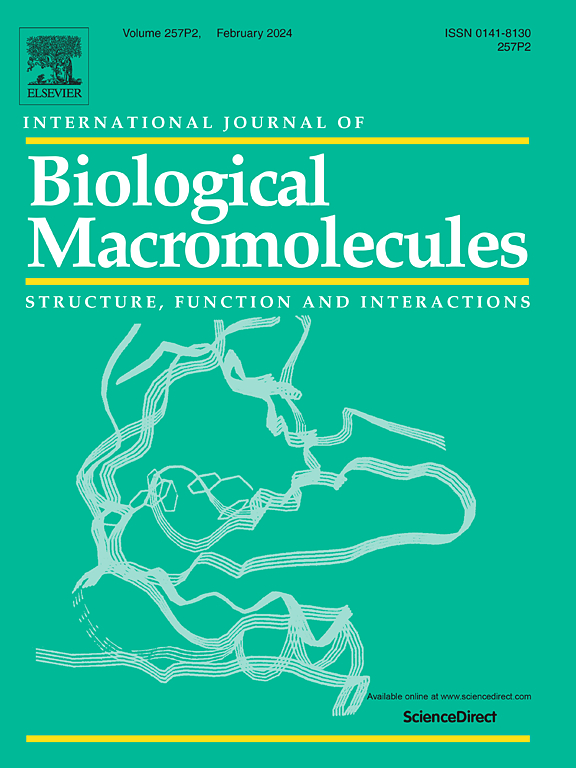高特异性和高效苯甲酰乌头碱水解酶的催化机理、计算设计和晶体结构。
IF 8.5
1区 化学
Q1 BIOCHEMISTRY & MOLECULAR BIOLOGY
International Journal of Biological Macromolecules
Pub Date : 2024-12-01
DOI:10.1016/j.ijbiomac.2024.137767
引用次数: 0
摘要
可卡因解毒酶疗法应能分解可卡因及其主要毒性代谢物苯甲酰可待因(BZE),这也是环境中可卡因污染物的主要形式。理想的 BZE 代谢酶(BZEase)应能高效、选择性地水解 BZE。在这里,我们通过基于反应物状态的酶设计理论(RED)从细菌可卡因酯酶(CocE)中设计出了BZEase4,与野生型CocE相比,它在BZE和神经递质乙酰胆碱(ACh)之间的底物分辨能力提高了34977倍。在 BZE 和 ACh 的生理浓度下,BZEase4 对 BZE 的反应速度是对 ACh 反应速度的 2.25 × 106 倍,这表明 BZEase4 对 BZE 的底物选择性比对 ACh 的底物选择性极高,从而将潜在的胆碱能副作用降至最低。这项研究为进一步开发 BZEase4 提供了更多证据,使其有望成为一种治疗可卡因过量的药物,同时也是一种在环境中降解 BZE 的潜在有效且环保的酶解方法。本文章由计算机程序翻译,如有差异,请以英文原文为准。
Catalytic mechanism, computational design, and crystal structure of a highly specific and efficient benzoylecgonine hydrolase
Enzyme therapy for cocaine detoxification should break down both cocaine and its primary toxic metabolite, benzoylecgonine (BZE), which is also the main form of cocaine contaminant in the environment. An ideal BZE-metabolizing enzyme (BZEase) is expected to be highly efficient and selective in BZE hydrolysis. Here, BZEase4 was engineered from bacterial cocaine esterase (CocE) by our reactant state-based enzyme design theories (RED), which has a 34,977-fold improved substrate discrimination between BZE and the neurotransmitter acetylcholine (ACh), compared with wild-type CocE. Under the physiological concentrations of BZE and ACh, the reaction velocity of BZEase4 against BZE is 2.25 × 106-fold higher than it against ACh, suggesting BZEase4 has extremely high substrate selectivity for BZE over ACh to minimize the potential cholinergic side-effects. This study provides additional evidence supporting the further development of BZEase4 toward a promising therapeutic for cocaine overdose, a potentially effective and eco-friendly enzymatic method for BZE degradation in the environment.
求助全文
通过发布文献求助,成功后即可免费获取论文全文。
去求助
来源期刊
CiteScore
13.70
自引率
9.80%
发文量
2728
审稿时长
64 days
期刊介绍:
The International Journal of Biological Macromolecules is a well-established international journal dedicated to research on the chemical and biological aspects of natural macromolecules. Focusing on proteins, macromolecular carbohydrates, glycoproteins, proteoglycans, lignins, biological poly-acids, and nucleic acids, the journal presents the latest findings in molecular structure, properties, biological activities, interactions, modifications, and functional properties. Papers must offer new and novel insights, encompassing related model systems, structural conformational studies, theoretical developments, and analytical techniques. Each paper is required to primarily focus on at least one named biological macromolecule, reflected in the title, abstract, and text.

 求助内容:
求助内容: 应助结果提醒方式:
应助结果提醒方式:


